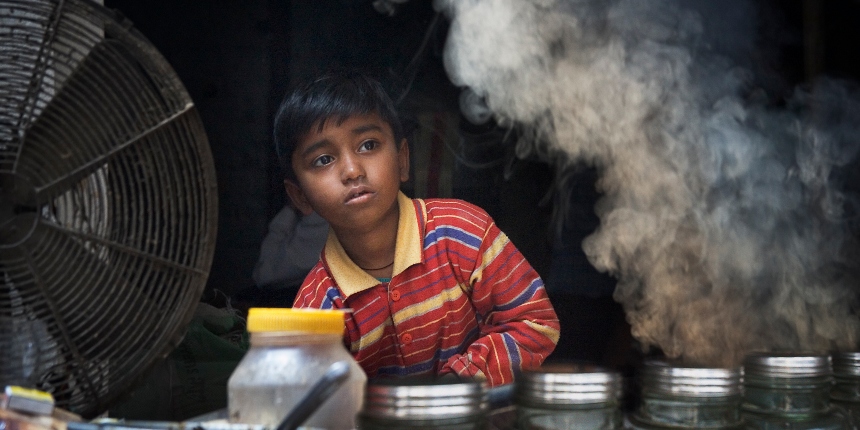Muslim, SC areas less likely to have government secondary schools: Study
Atul Krishna | June 16, 2023 | 11:58 AM IST | 2 mins read
Neighbourhoods that are over 50% Muslim or Scheduled Caste not only have fewer government schools, they lack private services as well.

NEW DELHI: A study on the segregation of neighbourhoods in India and how that affects access to public services has found that areas with a large Scheduled Caste (SC) and Muslim populations are much less likely to have a government secondary school (Classes 8 to 10).
The study found that neighbourhoods which have a Muslim or SC population of over 50%, have a 22% lower likelihood of having a public secondary school. Moreover, neighbourhoods with 100% Muslim population are only half as likely to have a government secondary school as compared to a neighbourhood with 0% Muslim population.
The study said that despite the government’s attempt to universalise elementary education (Classes 1 to 8), 100% Muslim neighbourhoods have 1.9 fewer primary schools per one lakh people as compared to neighbourhoods with 0% Muslim population.
Also Read | Over 33% of SC, ST, OBC students drop out in Class 10: UDISE+
The working paper on ‘Residential segregation and unequal access to local public services in India: Evidence from 1.5 million neighbourhoods’ was written by researchers from Ivy League schools in the US and the Imperial College, London, in the United Kingdom.The study is based on data from the Socio Economic Caste Census (2011) and the sixth Economic Census (2013) by the Government of India. The paper takes national level data-sets from both censuses covering 1.5 million neighbourhoods, with each neighbourhood having approximately 700 people.
“We show that, within cities, public services are systematically allocated away from neighbourhoods where marginalised groups live. This holds for both Muslims and SCs, for almost every local service that we could measure, including primary and secondary schools, medical clinics, piped water, electricity, and closed drainage,” the paper says.
The central government and state governments led by the same party, BJP, have also taken steps that were seen as anti-minority such as the hijab ban and reducing funds for crucial minority scholarships.
Fewer private schools
The paper found that this lack of services in Muslim and SC neighbourhoods remains true when it comes to private services as well such as private schools.
“In fact, private facilities are also disproportionately allocated away from marginalised group neighbourhoods, presumably because people in those neighbourhoods have limited ability to pay for services,” the paper said.
Also Read | Over 400 schools to close in one of India’s most backward districts
The paper also noted that Indian cities have a “high level of segregation on the basis of both caste and religion”. It noted that “ north [India],which is poorer and where people are less disposed toward cross-caste marriage, is no less segregated than south [India]”.
It found that, in neighbourhoods with 100% Muslim, students receive 2.2 few years of schooling and in neighbourhoods with 100% SCs, students receive 1.6 few years schooling. This remains true even for students living in those neighbourhoods who aren't from the Muslim or SC community, the study says.
Follow us for the latest education news on colleges and universities, admission, courses, exams, research, education policies, study abroad and more..
To get in touch, write to us at news@careers360.com.
Next Story
]BJP national media panellist in Delhi University committee for new Partition Studies centre
Delhi University (DU) panel for the Centre for Independence, Partition Studies has several members connected to the BJP, RSS who have written on history almost exclusively from the Hindu-right’s perspective.
Atul Krishna